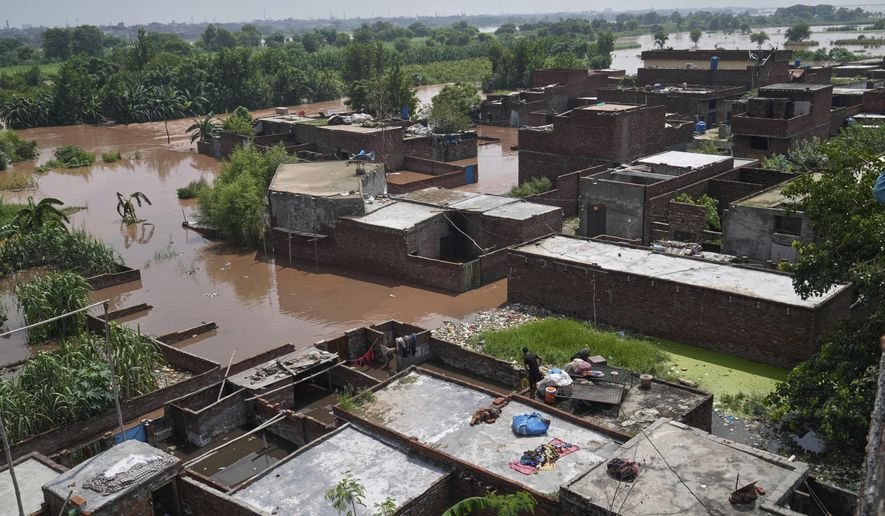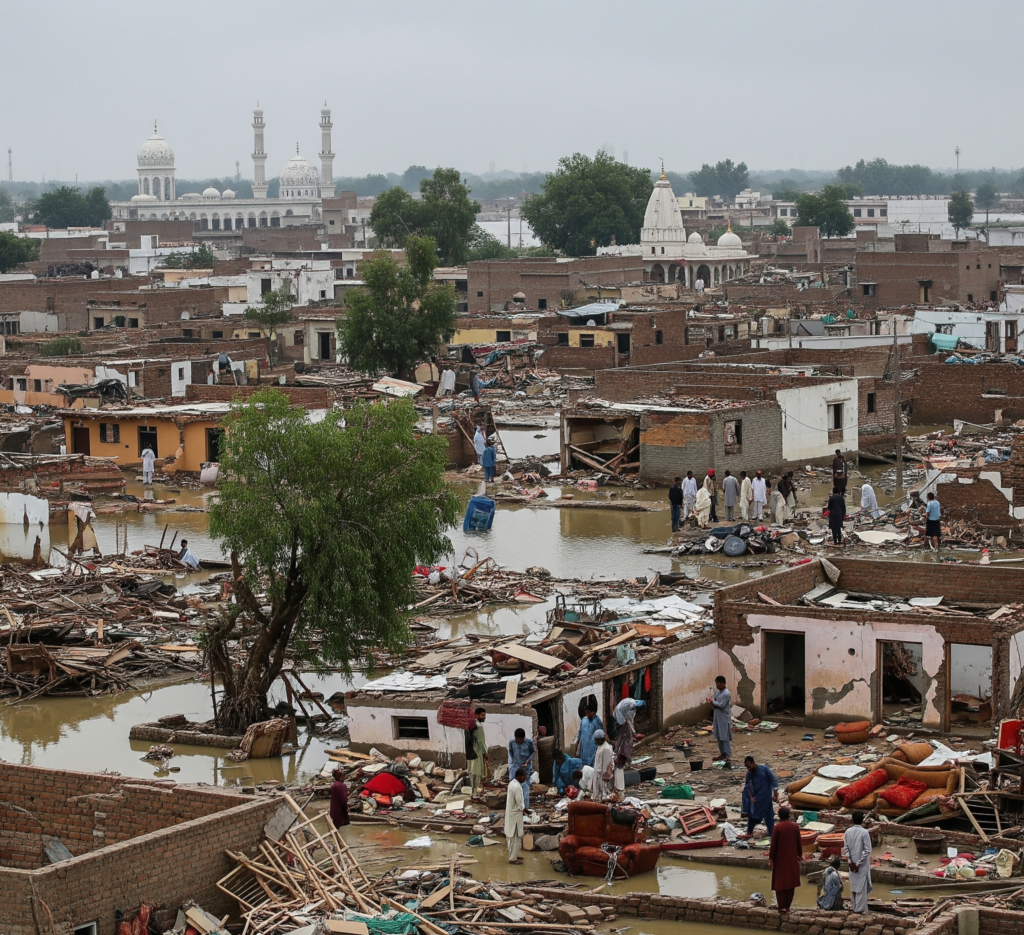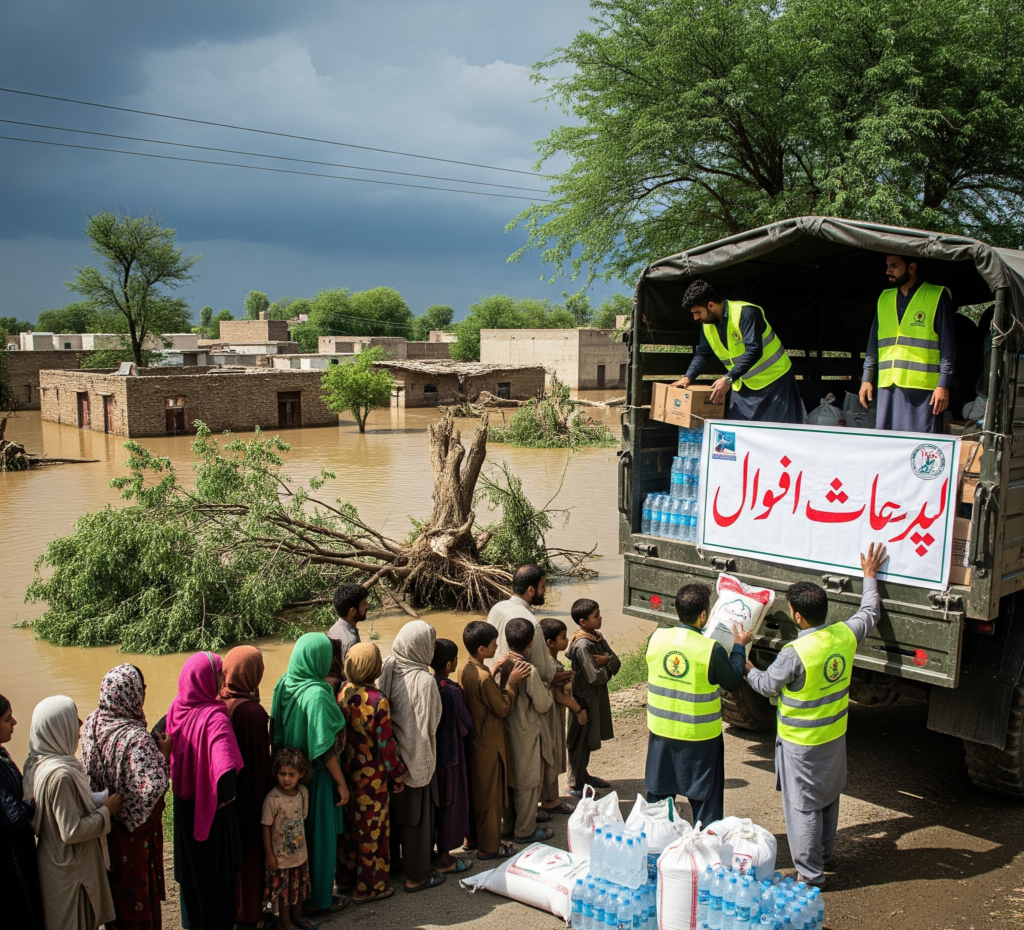Introduction
The flood in Pakistan has triggered one of the most severe humanitarian crises in recent history, leaving millions homeless and vulnerable. Recognizing the urgency, the Implementation of Universal Declaration of Human Rights (IUDHR) has decided to take immediate and tangible action. Following an emergency meeting, the Executive Committee endorsed the creation of an emergency relief fund to support victims and endorsed extensive relief operations in the worst-affected regions.
This initiative aligns with the United Nations’ call for global solidarity in times of natural disasters, emphasizing that no one should be left behind in the pursuit of safety, dignity, and human rights.

Flood in Pakistan: Scale of the Humanitarian Crisis
The flood in Pakistan has caused unprecedented destruction, submerging entire villages, washing away crops, and destroying critical infrastructure. According to initial reports, millions have been displaced, with women, children, and marginalized groups bearing the heaviest burden.

Key statistics to highlight:
- Over 33 million people affected nationwide (link externally to UN OCHA or UN News for data).
- Thousands of schools, homes, and health facilities destroyed.
- Sharp rise in disease outbreaks due to lack of clean water and sanitation.
IUDHR Executive Committee Takes Action
In a high-level meeting, the IUDHR Executive Committee unanimously endorsed the following urgent measures to address the flood in Pakistan:
- Creation of an Emergency Relief Fund to mobilize resources for victims.
- Partnerships with local and international organizations to distribute food, medicine, and shelter.
- Deployment of legal and advocacy teams to ensure protection of vulnerable groups, particularly women and children.
- Administrative restructuring to effectively coordinate relief operations at district and provincial levels.
UN Message on Humanitarian Solidarity
The United Nations has urged the international community to show solidarity with the people of Pakistan, noting that climate disasters amplify inequalities and disproportionately harm vulnerable populations.
“Natural disasters like the flood in Pakistan remind us of our shared responsibility to protect human dignity, equality, and the right to life. Global solidarity is not optional—it is essential.” – [United Nations Official Statement]
IUDHR fully endorses this call and pledges to stand alongside Pakistan in this moment of crisis.
How You Can Help: Contribute to the Flood Relief in Pakistan
IUDHR invites individuals, organizations, and institutions to contribute generously to the Emergency Relief Fund. Contributions will directly support flood victims with:
- Food and nutrition packs.
- Temporary shelters.
- Medical aid and essential supplies.

IUDHR’s Commitment to Human Rights During Disasters
Beyond immediate relief, IUDHR recognizes that natural disasters often lead to secondary human rights violations such as gender-based violence, child exploitation, and lack of legal recourse.
Therefore, IUDHR will:
- Advocate for policy reforms to strengthen disaster preparedness.
- Provide training for lawyers and human rights defenders to monitor violations during crisis situations.
- Work with the Sindh High Court Bar Association and other legal bodies to ensure justice for affected families.
Conclusion: Standing Together for Pakistan’s Flood Victims
The flood in Pakistan has exposed the fragility of communities in the face of climate change and inequality. IUDHR’s decision to create an emergency relief fund and mobilize relief operations reflects its deep commitment to the Universal Declaration of Human Rights (UDHR).
In partnership with national and international stakeholders, we believe this initiative will not only provide immediate relief but also strengthen long-term resilience, ensuring dignity and justice for all victims.
Together, we can transform this crisis into an opportunity for solidarity, compassion, and human rights action.
